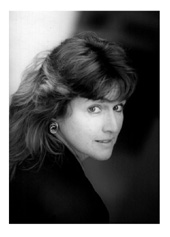
Putinís grand entrance at Okinawa
Putin entered with a bang and Clinton exited with a whisper. It was the Russian Presidentís first G-8 meeting and the American Presidentís last. Clinton was distracted by the talks he had left behind at Camp David, and the dimming hope that he would be able to close his double mandate with an historical peace between the Israelis and the Palestinians. Putin had his energy centered on his debut appearance among the Great of the West at Okinawa, with stops en route in Pyongyang and Bejing that would provide his Russian diplomacy with convincing cards to play at the table of those who had won the Cold War.
From the moment that Putin took office, he declared that Russia was not only a European power but also an Asian power. Those words may have smacked of bloated rhetoric or fanciful aspiration at the time, but instead his visits to the Chinese and North Korean capitals demonstrated their substance.
The true range of the agreements reached with the Chinese has yet to be evaluated, for example the regulation of bank accords or certain economic relations. However, both countries were very clear about their common strategy regarding defense and in particular, their hard stand against Americanís antimissile shield project. Their discussion of this matter awarded Putin an implicit power of attorney to speak for Chinese interests at the Okinawa summit.
Nonetheless, a man as astute as Putin is likely to have gone to China not only to earn the right to speak for them at the G 8 summit, but to learn from Chinaís success relative to the Soviet model. The GNP in China is three times that of Russia. Among the many interests that may have pushed Moscow toward a renewal of relations with Bejing is a certain fascination with the Chinese model for development: an authoritarian form of social-capitalism based on a rigid system of central political power on the one hand, and a flexible and dynamic economy on the other.
No item on the summitís foreign policy agenda was more interesting than Putinís assessment of North Koreaís reclusive leader. In North Korea, Putin had managed to obtain an offer from Kim Jong II to abandon his countryís missile program in exchange for aid in developing a program of space exploration. This point is poignantly tied to the Chinese, Russian, and for that matter even the USís European alliesí disaccord with the intention of the United States to proceed with its anti-missile project, since North Koreaís strategic missile capability is one reason why the Clinton administration has insisted on the need to build a limited U.S. missile defense system.
Putin made it clear that he hopes Russia will continue gaining status as a major player at the G-8 meetings. Not only did he steal the show by showing up with the power to speak in the names of both China and North Korea, but he defied all expectations by avoiding even the hint of a request for handouts in order to relieve Russiaís burdensome 42 million dollar debt accumulated during the Communist era.
One thing is certain: the era of Putin will be very different from that of Yeltsin. On the international scene and at home Yeltsin was theatrical and magniloquent. Putin is concrete and essential. Yeltsin was prone to promising more than he could deliver. Putin is parsimonious with words and munificent with action. In this respect his unexpected meetings with Jiang Ze Min in Bejing and with Kim Jong II in Pyongyang demonstrated a masterful sense of timing.
August 2000
Return to home page Return to list
Editors interested in subscribing to this syndicated column may request information by sending an e-mail to: giogia@giogia.com